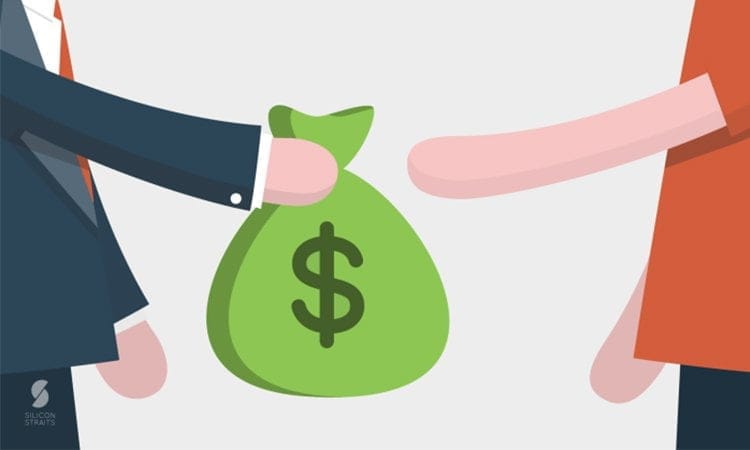1. What is property benefit without legal basis?
The transfer of assets from one person to another is usually based on legal bases such as: buying and selling, borrowing, borrowing, inheritance… In reality, there are cases where one person’s assets are transferred to another person. others not based on the grounds prescribed by law. If due to an illegal act, the property of another person is appropriated, the bona fide illegal possessor must return the property and compensate for damages to the owner or legal possessor.
Gaining property benefits without legal basis should be understood as the arising of a subject’s right to possess and use property over an asset but not based on the grounds prescribed by law. The person who benefits from property does not know that the property belongs to someone else but considers the property to be his or her own.
Benefiting from property without legal basis, although it reduces a part of the property owned by another person, is not an illegal act that causes property damage. Therefore, there is no liability to compensate for damages outside the contract. A person who benefits from another person’s property must return that benefit to the owner (Clause 2, Article 581 of the 2015 Civil Code).
Distinguishing between the above two types of obligations has important practical implications. In liability for damages, the person causing the damage must compensate for all damages that occur, including lost income or reduction due to the owner’s inability to use the property.

2. Conditions that give rise to a refund obligation due to property benefits have no legal basis
2.1. There must be property damage to the owner
Damage in this case is understood as loss of property, lack of part of the property owned by another person, the owner no longer has property to use. Therefore, the owner’s assets do not increase or the owner does not receive profits from exploiting the uses of the assets.
2.2. Gaining property benefits not based on legal grounds
The law stipulates a number of bases that give rise to the right to own and possess property of a subject such as: through civil contracts, inheritance of property…
Normally, benefiting from property begins right from the moment of possession of the property, not based on specific grounds prescribed by law. There are a number of other cases where there is a basis for property possession, such as through effective contracts or civil judgments, but later the contract is invalidated or the judgment is canceled according to cassation or retrial procedures. , a person’s possession from having a legal basis has changed to possession without a legal basis: Depending on each specific case, determine whether it is an act of possession without a legal basis or for profit. about property.
2.3. The person who benefits from the property is not at fault
When benefiting from property, the beneficiary does not know it, but considers the property as his or her own. If the person who benefits from the property knows that the property is not his or hers, he or she must return it to the owner or hand it over to the People’s Committee of the commune or ward (Article 228 of the 2015 Civil Code). If the beneficiary intentionally possesses property, he or she must be responsible for the act of possessing the property due to his or her benefit. In this case, they become possessors without legal basis and not in good faith.
3. The obligations of the person benefiting from the property have no legal basis
A person who benefits without a legal basis is obliged to return the benefit received (Clause 2, Article 581 of the 2015 Civil Code). The benefit payable is the actual benefit that the beneficiary has received or the benefit at the time the obligation arises. Yields and profits earned before the time the obligation arises do not have to be returned. In this case, it is necessary to distinguish between the honesty or dishonesty of the person who benefits from the property. This means that the person’s profit is due to not knowing that there is no legal basis for using the property. That person considers the property to be theirs. In their subjective consciousness, they consider the property to belong to them. their property, so the beneficiary is free to exploit benefits from the property.
At the time the repayment obligation arises, the value of the asset may be reduced compared to the value when the asset first appeared. If during the period of possession of the property, the beneficiary uses the property or unintentionally causes the property to be damaged, the beneficiary must return the remaining property and compensate for the damage. If property is destroyed or lost, the beneficiary must compensate in money. Compensation value calculated at the time of payment.
There is a view that if an object is damaged, when an obligation arises, the beneficiary pays the property owner in that actual condition. In case an object is lost or destroyed, the person who benefits from the property does not have to compensate. According to this point of view, before the obligation arises, the beneficiary considers the property to be theirs, so they may not care about the property, allowing the property to be damaged, lost, or that property to them. unnecessary. Therefore, they do not preserve and preserve assets.
Regarding the benefits and profits obtained from the use of assets: when the property must be returned, the beneficiary does not have to pay those benefits and profits. The beneficiary must only pay the profits and income earned from the time he knew or should have known that he was benefiting from another person’s property (Clause 2, Article 581 of the 2015 Civil Code).
In case the beneficial property has been transferred to a third person, the owner has the right to request the third person to return the property to him or her. If a third person buys the property of the beneficiary, he or she has the right to request that person to return the money to him or her.
If property owned by a third person is damaged due to their fault, the third person must compensate for the damage. In case the property owned by a third person no longer exists, the person who benefits from the property must compensate the owner for any damage.





